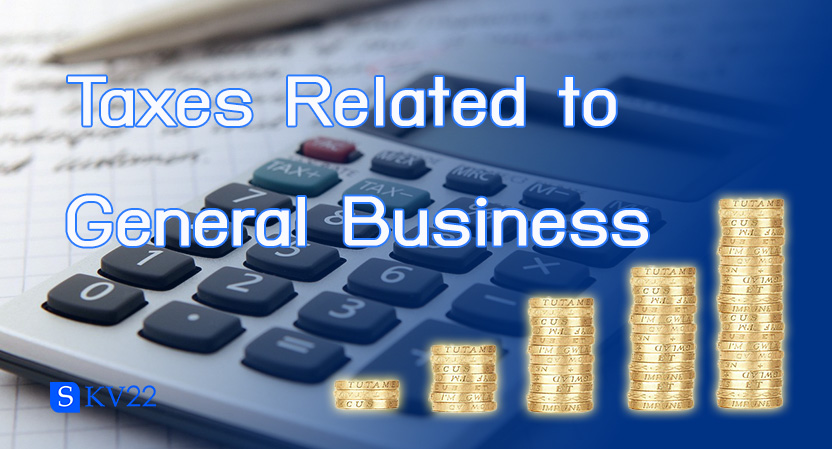
Taxes Related to General Business
1. Income Tax
Income tax is a tax imposed by the government on the income of individuals, businesses, and other entities within its jurisdiction. Income tax is one of the primary sources of revenue for the government, used to support public services and various projects. There are two main types of income tax: individual income tax and corporate income tax. Generally, individual income tax is more relevant to the general public, as not everyone is a business owner.
2. Value-Added Tax (VAT)
Value-Added Tax (VAT) is a tax levied on the sale of goods or services at each stage of production and distribution, both for domestically produced and imported goods or services. The VAT rate for businesses in Thailand is 7% of the value of the goods or services sold. According to the law, whether the business is small or large, if its annual revenue exceeds 1.8 million baht, the business must register for VAT with the Revenue Department. The business is required to submit VAT to the authorities within the specified time, using the form "Por.Por.30" (which summarizes the VAT on purchases and sales) for monthly VAT filings with the Revenue Department.
3. Withholding Tax
Withholding tax is another important tax concept that legal entities must understand, as it is a crucial part of accounting. As mentioned earlier, a registered legal entity must deduct tax before making payments to both individuals and other legal entities. The withheld amount must then be submitted to the Revenue Department between the 7th and 15th of each month, using forms Phor.Ngor.Dor.3 (withholding tax for individuals) or Phor.Ngor.Dor.53 (withholding tax for legal entities). The rate of withholding tax varies depending on the type of payment made. For example, service fees are subject to a 3% withholding tax, rental payments to a 5% withholding tax, and transportation fees to a 1% withholding tax, among others. The payer is required to issue a withholding tax certificate to the payee, which can then be used to claim a refund from the government or reduce the tax burden.
However, if the value of goods or services paid is less than 1,000 baht per transaction, the payer is not required to withhold tax. But if the payments are made regularly, even if each transaction is under 1,000 baht, the payer must still withhold tax. For example, monthly telephone service charges may not exceed 1,000 baht per payment, but if the total amount paid over time exceeds 1,000 baht, the payer must still deduct withholding tax.
4. Special Business Tax
Special Business Tax is a tax levied specifically on certain types of businesses. Common examples include banks, life insurance companies, pawnshops, securities businesses, money lending and collateral guarantee businesses, foreign exchange businesses, and real estate trading businesses, among others. The details of this tax are outlined in specific laws that regulate each type of business. If you operate a business that falls under the scope of special business taxes, it is essential to study the relevant laws carefully to avoid mistakes when filing taxes.
You can view the list of businesses subject to Special Business Tax on the Revenue Department's website here: https://www.rd.go.th/683.html